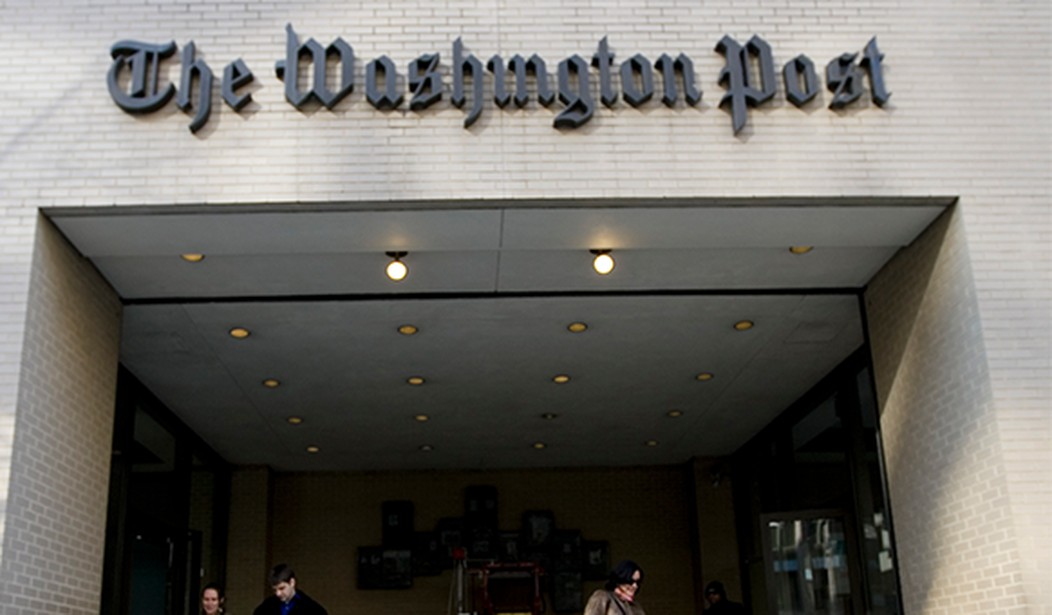Here’s the headline on the Washington Post‘s recent entry in the Progressive Establishment Media’s campaign to save President Joe Biden from the accountability horror of Republican majorities in both chambers of Congress: “‘It’s a rip-off:’ GOP Spending Under Fire as Senate Hopefuls Seek Rescue.”
National Political Reporter Isaac Arnsdorf gets the byline, with an assist credit going to another National Political Reporter, Michael Scherer. Arnsdorf is a Yale University graduate, while Scherer is a Columbia University alum.
Under that tantalizing headline — Political scandal! Desperate Republicans!! Intra-party GOP strife!!! — comes a lengthy analysis, the gist of which is captured in the lede:
“Republican Senate hopefuls are getting crushed on airwaves across the country while their national campaign fund is pulling ads and running low on cash — leading some campaign advisers to ask where all the money went and to demand an audit of the committee’s finances, according to Republican strategists involved in the discussions.”
Arnsdorf never discloses who those Republican strategists are because, as he explains, they all “spoke on the condition of anonymity to discuss internal matters.” That’s newsroom code for, “he or she will never again fill me in on the latest internal GOP rumors, gossip, back-biting, and bitching if I disclose the names of my sources.”
Not only does he not disclose the sources’ names, but Arnsdorf also provides zero additional information about them that would at least give readers some sense of whether the anonymous whisperers in the reporters’ ears are in a position to know what they claim to know.
Few Post readers are ever likely to know it, but the National Republican Senatorial Committee (NRSC) responded to the Arnsdorf story, calling it “a fascinating tale driven entirely by inaccurate and incomplete information pushed by anonymous DC consultants who are still mad that they didn’t get the contracts they normally get from the NRSC this cycle.”
Not only that, but the NRSC went on to cite seven huge inaccuracies in the story. As of this column’s publication, Arnsdorf has not responded to my request for his response to the NRSC’s critique, nor have his Post editors added any corrections to the online version of the story.
Journalists, including me, make mistakes. Deadline pressure, lack of cooperative officials, having an editor breathing down your neck to “keep it to 600 words this time, Jack!” and a hundred other reasons are why most mistakes get into print.
But that silence from Arnsdorf and his editors is especially curious because these seven inaccuracies fundamentally undermine Arnsdorf’s central claim that GOP Senate candidates are getting desperate because of the incompetence or dishonesty of NRSC Chairman Sen. Rick Scott (R-Fla.) and his staff.
How serious are the seven errors? Judge for yourself (NRSC responses are in boldface):
- According to the Post, “Republican Senate hopefuls are getting crushed on airwaves across the country while their national campaign fund is pulling ads.”
NOPE. The NRSC has spent more than $41 million on TV ads since the beginning of the cycle, compared to $2 million by our counterpart, the DSCC.
- According to the Post, the NRSC “canceled bookings worth about $10 million, including in the critical states of Pennsylvania, Wisconsin and Arizona… Still, the cancellations forfeit cheaper prices that came from booking early, and better budgeting could have covered both.”
NOPE. Get better sources who actually understand how ad buying works (or reporters who understand how ad buying works). The NRSC is spending heavily in Pennsylvania, Wisconsin, and Arizona (including new ad buys in all three states on Friday) and will continue to find the most effective and efficient way to spend money.
- According to the Post, “’The fact that they canceled these reservations was a huge problem — you can’t get them back,’ said one Senate Republican strategist, who like others spoke on the condition of anonymity to discuss internal matters. ‘You can’t win elections if you don’t have money to run ads.’”
NOPE. Again, this is just laughably idiotic. Get better sources. [NRSC] can certainly understand why this source spoke on the condition of anonymity, since if they went on the record, everyone in politics would know how stupid they are.
- According to the Post, “As of that month, the [NRSC] disclosed spending just $23 million on ads.”
NOPE. Only off by $18 million. Editors could help with that.
- According to the Post, “more than $12 million to American Express credit card payments, whose ultimate purpose isn’t clear from the filings.”
NOPE. All of this information is itemized on the FEC report, if anyone at the Washington Post bothered to look at that, instead of the summary tables sent to them by disgruntled DC consultants.
- According to the Post, “the NRSC’s chairman, Sen. Rick Scott of Florida, has already taken heat from fellow Republicans for running ads featuring him on camera.”
NOPE. This is completely made up. The NRSC has spent exactly 0 dollars on TV ads featuring Chairman Scott.
- According to the Post, “The NRSC opted not to pick favorites in this year’s primary contests, a break from the past decade when the committee worked to avoid out-of-the-mainstream nominees who cost the party wins in 2010 and 2012.”
NOPE. This is just patently false. There has been one race in the last decade where the NRSC got involved in an open primary. The NRSC does not get involved in open primaries, nor does the NRCC. This is not a Rick Scott policy. This is an NRSC policy.
I’m from out of town and all, but I doubt Arnsdorf’s story would have made it past the copy desk at the Washington Post of 1976 when I first arrived in the nation’s capital. Nor would it at any of the conservative media outlets at which I’ve labored as a reporter and an editor in the years since.










Join the conversation as a VIP Member